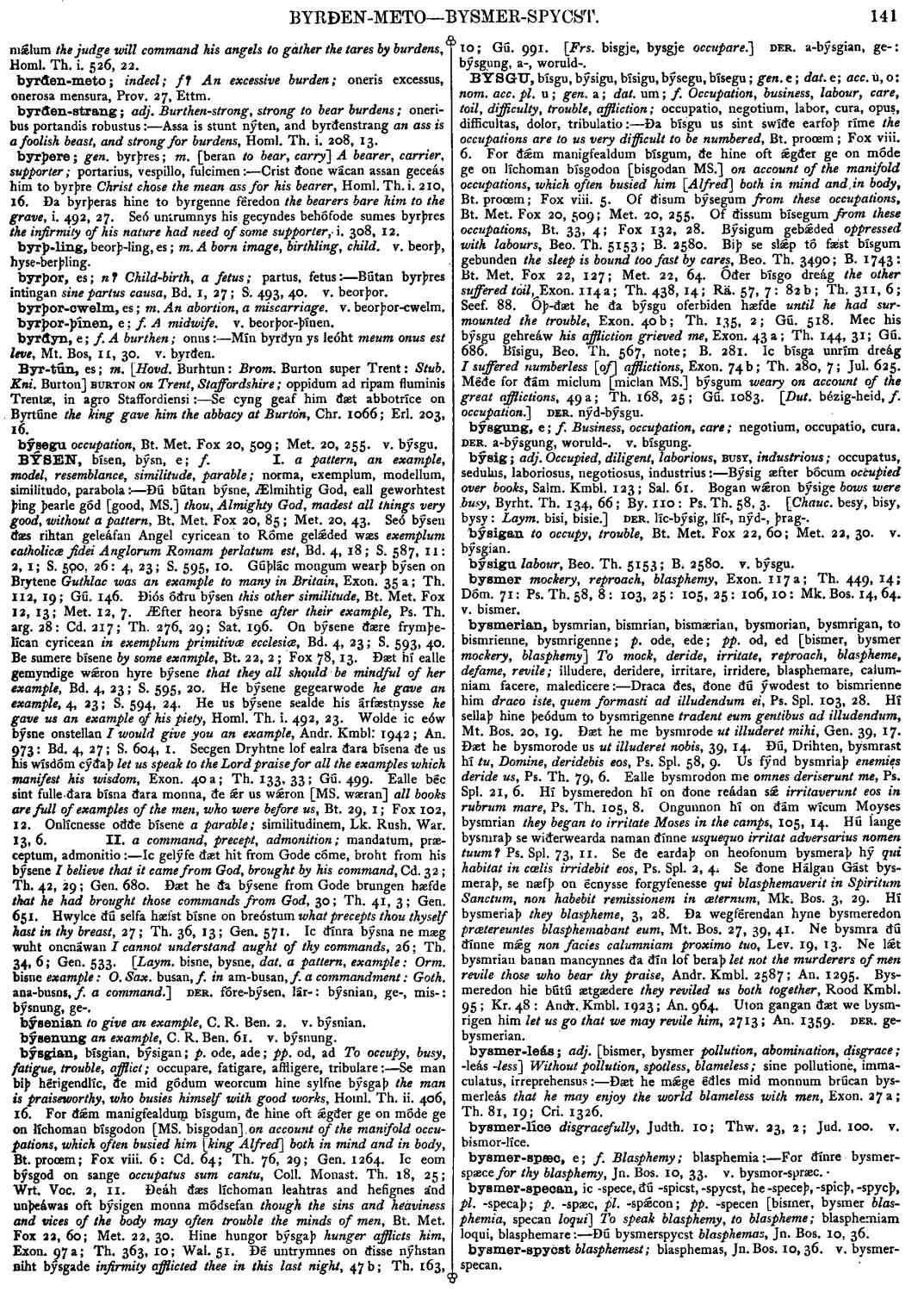býsgian
- verb [ weak ]
-
Se man biþ hérigendlíc, ðe mid gódum weorcum hine sylfne býsgaþ
the man is praiseworthy, who busies himself with good works,
- Homl. Th. ii. 406, 16.
-
For ðǽm manigfealdum bísgum, ðe hine oft ǽgðer ge on móde ge on líchoman bísgodon [MS. bisgodan].
on account of the manifold occupations, which often busied him [king Alfred] both in mind and in body,
- Bt. proœm; Fox viii. 6: Cd. 64; Th. 76, 29; Gen. 1264.
-
Ic eom býsgod on sange
occupatus sum cantu,
- Coll. Monast. Th. 18, 25; Wrt. Voc. 2, 11.
-
Ðeáh ðæs líchoman leahtras and hefignes and unþeáwas oft býsigen monna módsefan
though the sins and heaviness and vices of the body may often trouble the minds of men,
- Bt. Met. Fox 22, 60; Met. 22, 30.
-
Hine hunger býsgaþ
hunger afflicts him,
- Exon. 97a; Th. 363, 10; Wal. 51.
-
Ðé untrymnes on ðisse nýhstan niht býsgade
infirmity afflicted thee in this last night,
47 b;- Th. 163, 10; Gú. 991.
Bosworth, Joseph. “býsgian.” In An Anglo-Saxon Dictionary Online, edited by Thomas Northcote Toller, Christ Sean, and Ondřej Tichy. Prague: Faculty of Arts, Charles University, 2014. https://bosworthtoller.com/5678.
Checked: 0